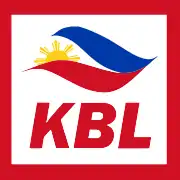Kilusang Bagong Lipunan
The New Society Movement (Filipino: Kilusang Bagong Lipunan, KBL), formerly named the New Society Movement of United Nationalists, Liberals, et cetera (Filipino: Kilusang Bagong Lipunan ng Nagkakaisang Nacionalista, Liberal, at iba pa, KBLNNL), is a political party in the Philippines. It was formed in 1978, as an umbrella coalition of parties supporting then-President Ferdinand E. Marcos for the Interim Batasang Pambansa (National Assembly), and was his political vehicle during his rule.[9] It was reorganized as a political party in 1986.
New Society Movement Kilusang Bagong Lipunan | |
|---|---|
 | |
| Founded | 1978 |
| Split from | Nacionalista Party Liberal Party |
| Headquarters | Laoag |
| Ideology | Filipino nationalism[1] Authoritarianism (1978–86)[2][3][4][5] Anti-communism[2][5] Factions: (1978–86) Conservatism[6] |
| Political position | Right-wing[7] or Syncretic[8] (historical) |
| Colors | Blue, White, Red, and Yellow |
| Seats in the Senate | 0 / 24 |
| Seats in the House of Representatives | 0 / 300 |
| Website | |
| www.kbl.org.ph | |
Since 1986, the KBL has contested in most of the national and local elections in the Philippines but retained a single seat in the House of Representatives in Ilocos Norte, which was held by former First Lady Imelda Marcos until 2019.
Party division
There was confusion in the 2007 election campaign within the party which stems from the recent endorsement (allegedly by the KBL) of Marcos loyalist lawyer Oliver Lozano to dubious senatorial candidate Joselito Pepito "Peter" Cayetano, who was the namesake of Rep. Alan Peter Cayetano, an opposition stalwart. Rep. Cayetano said that Gov. Ferdinand "Bongbong" Marcos Jr., who is the president of the KBL, has certified that Joselito Cayetano has no party affiliation whatsoever with the KBL and that no endorsement was called for his namesake's candidacy.[10] Subsequently, Marcos has denounced loyalist lawyer and senatorial candidate Oliver Lozano along with his candidates for turning the KBL into an "embarrassment". Marcos said that the party leadership would deal with the "renegade members" of the KBL after the elections.[11]
On November 20, 2009, the KBL forged an alliance with the Nacionalista Party (NP) between Bongbong Marcos and NP Chairman Senator Manny Villar at the Laurel House in Mandaluyong.[12] Bongbong was later on removed as a member by the KBL National Executive Committee on November 23.[13] As such, the NP broke its alliance with the KBL due to internal conflicts within the party, though Bongbong remained part of the NP Senatorial line-up.[12]
Candidates for the Philippine general election, 2010
- Vetellano Acosta – Presidential Candidate (lost)
- Jay Sonza – Vice Presidential Candidate (lost)
- Senatorial slate:
- Alma Lood (lost)
- Hector Villanueva (lost)
- Shariff Ibrahim Albani (lost)
Notable members
- Ferdinand Marcos — 10th Philippine President, Senate President, congressman
- Roberto "Amay Bisaya" Reyes — Senatorial candidate, gubernatorial candidate of Bohol, comedian
- Larry Gadon — Senatorial candidate in the Philippine general election in 2016, lawyer; pushed for the impeachment of former Chief Justice Maria Lourdes Sereno[14][15]
- Salvador Panelo, presidential spokesperson
Notable former members
- Imelda Romualdez-Marcos — (Moved to Nacionalista Party) Former First Lady, Minister of Human Settlements, Governor of Metro Manila, Congresswoman
- Ferdinand Marcos Jr. — (Moved to Nacionalista Party) Vice-Governor, Governor, Congressman, Senator
- Imee Marcos — (Moved to Nacionalista Party) Senator, Governor, Congresswoman
References
- Clarke, Gerard (2006). The Politics of NGOs in Southeast Asia. Routledge. p. 66.
- Celoza, A. (1997). Ferdinand Marcos and the Philippines: The Political Economy of Authoritarianism. Connecticut, USA: Praeger Publishers.
- Timberman, D. (1991) A Changeless Land: Continuity and Change in Philippine Politics: Continuity and Change in Philippine Politics. USA: Taylor and Francis.
- Bello, Madge; Reyes, Vincent (1986). "Filipino Americans and the Marcos Overthrow: The Transformation of Political Consciousness". Amerasia Journal. 13: 73–83. doi:10.17953/amer.13.1.21h54l86268n023n.
- Pinches, M. (1986). "Elite democracy, development and people power: contending ideologies and changing practices in Philippine politics"
- Landé, Carl (1996). Post-Marcos Politics: A Geographical and Statistical Analysis of the 1992 Presidential Election. Institute of Southeast Asian Studies. p. 37.
- Derbyshire, J. Denis (1991). Political Systems Of The World. Allied Publishers. p. 120.
- Griffin, Roger (1990). The Nature of Fascism. St. Martin's Press. p. 37.
- "Philippines - Local government". Encyclopedia Britannica. Retrieved 2018-07-24.
- "Cayetano calls Gonzales a nuisance' secretary". GMA News. February 21, 2007. Retrieved April 19, 2015.
- "Bongbong calls Lozano, 'Cayetano' nuisance bets". GMA News. March 21, 2007. Retrieved April 19, 2015.
- "Feed a hungry child this Christmas". The Philippine Star. Archived from the original on February 8, 2013. Retrieved April 19, 2015.
- "Filing of COCs at Comelec on Day 4". The Philippine Star. Archived from the original on September 9, 2012. Retrieved April 19, 2015.
- Editorial (May 31, 2018). "Revising history — yet again". Philippine Daily Inquirer. Retrieved July 24, 2018.
- "Impeachment lawyer blasts 'yellow virus', denies he wants gov't post". ABS-CBN News. October 24, 2017. Retrieved July 24, 2018.